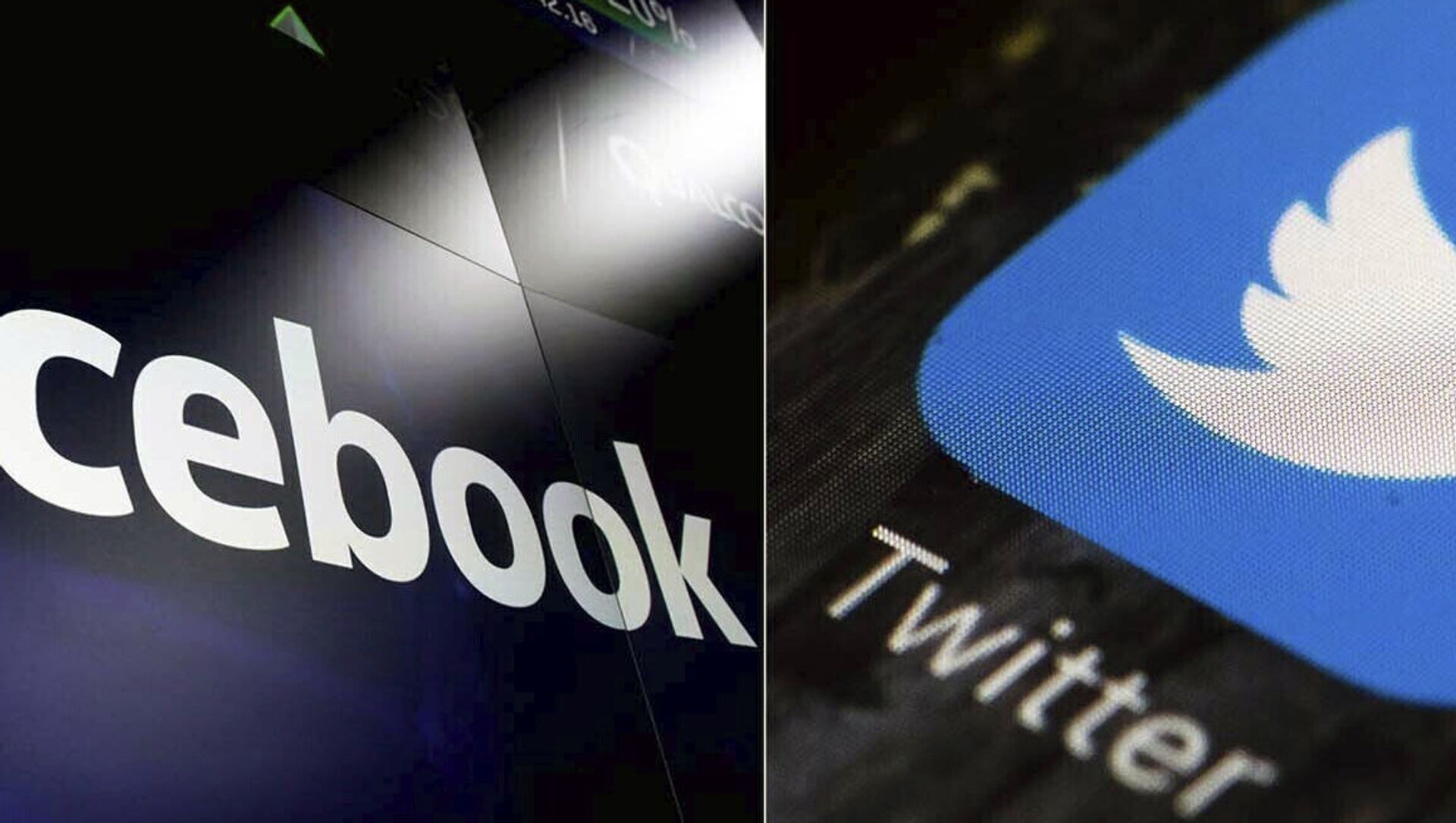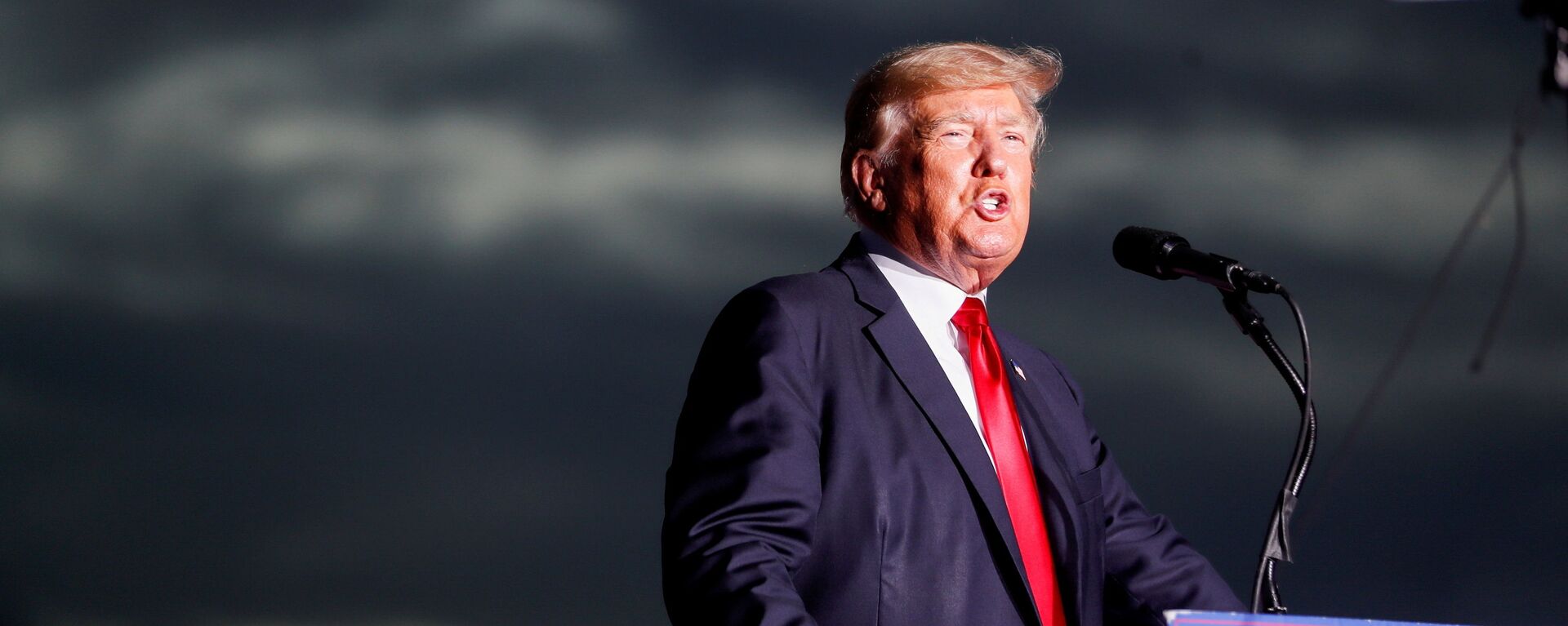https://sputnikglobe.com/20210817/facebook-twitter-face-tough-challenge-as-taliban-might-seize-afghan-governments-social-media-1083640414.html
Facebook, Twitter Face Tough Challenge as Taliban Might Seize Afghan Government's Social Media
Facebook, Twitter Face Tough Challenge as Taliban Might Seize Afghan Government's Social Media
Sputnik International
Both social media outlets have faced a lot of criticism in recent years over their handling of potentially dangerous content on their platforms, specifically... 17.08.2021, Sputnik International
2021-08-17T19:39+0000
2021-08-17T19:39+0000
2022-11-03T18:21+0000
asia
world
newsfeed
taliban
x (formerly twitter)
afghanistan
facebook
https://cdn1.img.sputnikglobe.com/img/07e5/07/07/1083329464_392:0:1549:654_1920x0_80_0_0_94b80d6647ec990568f1caaef9e180ac.jpg
US-based social media – Facebook and Twitter – might soon face a tough question regarding what they should do with dozens of Afghan government social media accounts should they fall into the hands of the Taliban*, who seized power in the country last Sunday. Facebook has long outright banned all Taliban-related content over the group's "terrorist" status, while Twitter has allowed some of its members to post tweets and banned others.But with the takeover of the verified Afghan government accounts and the unclarified new status of the Taliban, which is still marked as terrorist by the majority of countries in the world despite controlling Afghanistan, the social media platforms might have to reconsider their positions.Twitter has not yet commented on the issue, but has reported taking down the content of nearly 60,000 accounts related to terrorism in the first half of 2020.Facebook said it had removed 9 million posts in just the first quarter of 2021, but its representative told Forbes that the company has not yet developed a strategy towards the prospect of the Taliban controlling state social media accounts in Afghanistan. The representative said that Facebook might need more time and more clarity on the situation in the country in order to make a decision, but for now, it continues to filter the Taliban's content.In the past, Facebook has defended keeping certain controversial content on the platform, citing its newsworthiness and importance. Twitter has also resisted calls for censuring content that was not universally regarded as harmful. And yet, both platforms chose to ban US President Donald Trump earlier this year over unsubstantiated accusations that he agitated a crowd of his supporters so that they would attack the US Congress on 6 January. Trump was acquitted during the impeachment trial on these accusations and has repeatedly denied being responsible for the riot.
https://sputnikglobe.com/20210707/trump-to-announce-lawsuits-against-twitter-facebook-ceos-zuckerberg-dorsey-reports-say-1083329199.html
afghanistan
Sputnik International
feedback@sputniknews.com
+74956456601
MIA „Rossiya Segodnya“
2021
Tim Korso
https://cdn1.img.sputnikglobe.com/img/07e6/03/0d/1093831826_0:0:216:216_100x100_80_0_0_e3f43a960af0c6c99f7eb8ccbf5f812c.jpg
Tim Korso
https://cdn1.img.sputnikglobe.com/img/07e6/03/0d/1093831826_0:0:216:216_100x100_80_0_0_e3f43a960af0c6c99f7eb8ccbf5f812c.jpg
News
en_EN
Sputnik International
feedback@sputniknews.com
+74956456601
MIA „Rossiya Segodnya“
Sputnik International
feedback@sputniknews.com
+74956456601
MIA „Rossiya Segodnya“
Tim Korso
https://cdn1.img.sputnikglobe.com/img/07e6/03/0d/1093831826_0:0:216:216_100x100_80_0_0_e3f43a960af0c6c99f7eb8ccbf5f812c.jpg
newsfeed, taliban, x (formerly twitter), afghanistan, facebook
newsfeed, taliban, x (formerly twitter), afghanistan, facebook
Facebook, Twitter Face Tough Challenge as Taliban Might Seize Afghan Government's Social Media
19:39 GMT 17.08.2021 (Updated: 18:21 GMT 03.11.2022) Both social media outlets have faced a lot of criticism in recent years over their handling of potentially dangerous content on their platforms, specifically for failing to remove it in time. At the same time, the two companies were also condemned for engaging in censorship when they decided to ban US President Donald Trump.
US-based social media – Facebook and Twitter – might soon face a tough question regarding what they should do with dozens of Afghan government social media accounts should they
fall into the hands of the Taliban*, who seized power in the country last Sunday. Facebook has long outright banned all Taliban-related content over the group's "terrorist" status, while Twitter has allowed some of its members to post tweets and banned others.
But with the takeover of the verified Afghan government accounts and the unclarified new status of the Taliban, which is still marked as terrorist by the majority of countries in the world despite
controlling Afghanistan, the social media platforms might have to reconsider their positions.
Twitter has not yet commented on the issue, but has reported taking down the content of nearly 60,000 accounts related to terrorism in the first half of 2020.
Facebook said it had removed 9 million posts in just the first quarter of 2021, but its representative told Forbes that the company has not yet developed a strategy towards the prospect of the Taliban controlling state social media accounts in Afghanistan. The representative said that Facebook might need more time and more clarity on the situation in the country in order to make a decision, but for now, it continues to filter the Taliban's content.
"Facebook does not make decisions about the recognized government in any particular country but instead respects the authority of the international community in making these determinations. Regardless of who holds power, we will take the appropriate action against accounts and content that breaks our rules. We are relying on that policy to proactively take down anything that we can that might be dangerous or that is related to the Taliban in general", Facebook stated in a comment for Bloomberg.
In the past, Facebook has defended keeping certain controversial content on the platform, citing its newsworthiness and importance. Twitter has also resisted calls for
censuring content that was not universally regarded as harmful. And yet, both platforms chose to ban US President Donald Trump earlier this year over unsubstantiated accusations that he agitated a crowd of his supporters so that they would attack the US Congress on 6 January. Trump was acquitted during the impeachment trial on these accusations and has repeatedly denied being responsible for the riot.




